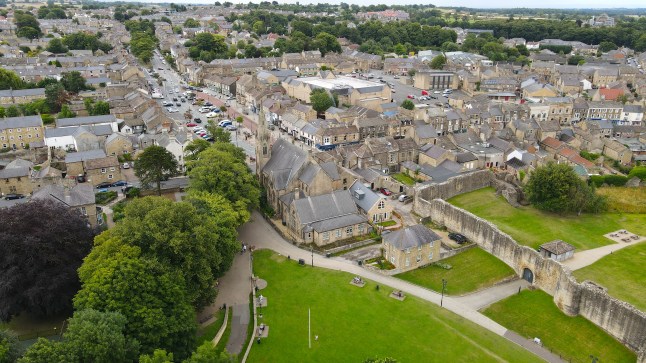
In the evolving tapestry of the English property market, an unmistakable trend is emerging: first-time buyers are getting older.
Nowhere is this more pronounced than in the South East, where the average age of first-time homeowners has climbed to 34 — marking the most substantial increase nationwide over recent years.
This development, revealed through fresh research by My Home Move Conveyancing, offers a telling glimpse into the interplay between affordability pressures, regional disparities, and shifting buyer behaviours.
Analysing over 39,000 property transactions from the first half of each year spanning 2021 to 2025, the research shows sharp contrasts in the age of first-time buyers across England’s regions.
Average age of first-time buyers in the UK
The South East has experienced a near three-year jump in average buyer age since 2021, reaching 34, the highest in the country.
In comparison, the East Midlands has bucked the trend slightly, seeing a small decline to around 31 years, while northern regions like the North West saw the average age rise from roughly 30 to 32.
Meanwhile, the North East also stands out for bucking the ageing trend, fielding younger buyers on average, a detail that underscores the patchwork nature of local market dynamics and regional affordability.
Areas with soaring property prices, such as the South East and London, inherently push aspiring owners into delayed homeownership, as higher deposits and costs require lengthier saving periods.
This contrasts with more affordable pockets like County Durham, where lower house prices enable younger buyers to make their first purchase earlier.

Alistair Singer, Director at My Home Move Conveyancing, spoke candidly about the forces propelling this demographic shift.
‘The gradual increase in first-time buyer age over the past decade reflects the changing property market and how the cost-of-living crisis continues to affect this landscape,’ he explained.
He added that buyers are increasingly adopting strategic approaches — saving for longer, carefully timing their market entry — rather than abandoning their homeownership aspirations altogether.
The challenges first-time buyers face
House price inflation poses a significant barrier: the typical first home now carries a price tag of £311,034, requiring deposits averaging over £61,000, according to Halifax.
This steep financial hurdle partly explains why more buyers are delaying entry, accumulating larger savings over extended periods.
New here? Sign up for The Key newsletter
Hello! I’m Rachel Moss, Metro’s lifestyle editor.
Whether you’re renting, buying, or just dreaming, our weekly property newsletter is packed with expert tips, housing hacks, and the best (and most bonkers) homes on the market.

Recently, we wrote about a women-only commune, why London’s fanciest houses are opening their doors to visitors and buying a home through shared ownership.
The evolving financial landscape is also visible in deposit funding. TSB Bank reports a decline in first-time buyers relying on family gifts — the so-called ‘Bank of Mum and Dad’ — from 34% in early 2024 to 30% in 2025.
This trend indicates that new buyers may be increasingly self-funding their deposit or saving longer, reflecting both greater financial independence and potentially more stringent saving requirements.
Corresponding with this, the average borrower’s age has edged up from 31 to 32 in the same timeframe, affirming the narrative of an ageing cohort adapting to financial realities.

Meanwhile, new government data further reveals disparities entwined with ethnicity.
While the overall average age of first-time buyers in England stands at 32, white British buyers tend to enter the market younger — around 31 years old.
Buyers from Asian and White Other ethnic backgrounds average closer to 35, a gap suggestive of broader socio-economic influences shaping residential trajectories.
Further demographic trends underscore changing buyer profiles. Santander UK’s research shows that the share of first-time buyers with dependent children has doubled in 15 years, now comprising one in five buyers.
And despite mounting challenges, recent Halifax data offers reason for optimism. First-time buyers surged by 19% in 2024, reaching 341,068 transactions — a clear indication of renewed market activity.
As the homeownership horizon evolves, the story of first-time buyers offers a telling reflection on how economic pressures, social changes, and market dynamics intertwine — shaping not only who buys homes, but also when and where they do so.







